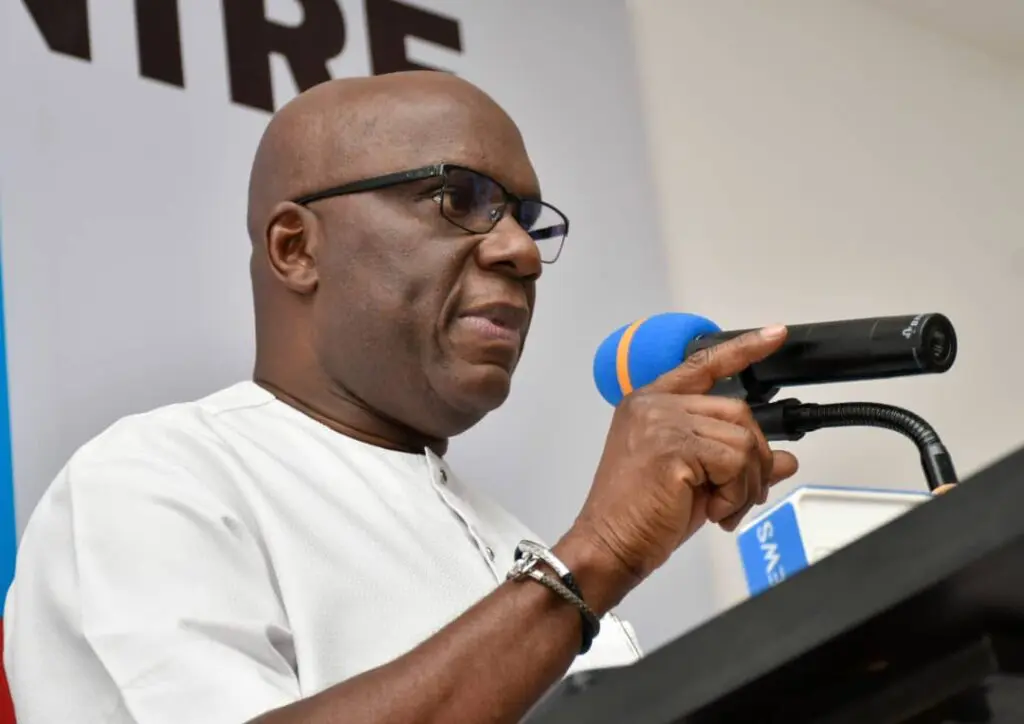Now Reading: “Even 419 Will Be Forgiven If You Pay First Fruit” — Prophet Fufeyin’s Viral Sermon Sparks National Outrage
-
01
“Even 419 Will Be Forgiven If You Pay First Fruit” — Prophet Fufeyin’s Viral Sermon Sparks National Outrage
“Even 419 Will Be Forgiven If You Pay First Fruit” — Prophet Fufeyin’s Viral Sermon Sparks National Outrage

A firestorm of controversy erupted across Nigeria after Prophet Jeremiah Omoto Fufeyin, founder of Christ Mercyland Deliverance Ministry, declared during a recent church service that paying one’s “first fruit” could wash away sins — even those committed through fraud, including 419 scams — and that “God will be behind” such individuals.
Standing before a packed congregation, Fufeyin made the statement while preaching at the Mercy City headquarters in Warri, Delta State. The clip, now viral on social media platforms since June 17, captures the preacher boldly asserting that financial sacrifices to God override moral failings — a message many have branded as “spiritual manipulation.”
In the viral video, the flamboyant preacher said, “If you pay your first fruit, your sins will be washed away. Even if you’re doing 419 [fraud], God will be behind you.” The statement drew thunderous applause from the church audience, while sparking fierce backlash online. Critics accuse him of promoting corruption under the guise of Christianity.
Human rights advocates, Christian groups, and economists have all weighed in. Some have called on the Christian Association of Nigeria (CAN) and the Pentecostal Fellowship of Nigeria (PFN) to sanction the clergyman, describing his remarks as a dangerous distortion of the gospel that could embolden cybercriminals, especially among desperate youth.
The “first fruit” doctrine — typically understood as giving the first income of the year to God as an act of honor — has long stirred debate in Nigerian churches. However, Fufeyin’s linking of it to divine endorsement of crime marks a shocking new low, analysts say. The message, critics warn, undermines the moral fabric of a nation already battling rampant fraud and economic decline.
Prominent lawyer and activist Inibehe Effiong called for regulatory action, stating, “This is beyond religious expression — it’s a national security threat when a preacher legitimizes 419 in the name of tithes.” Others questioned how a self-acclaimed prophet could publicly endorse criminality while the nation’s institutions remain silent.
Fufeyin, known for theatrics, miracle claims, and controversial teachings, has a history of commanding headlines. In previous years, he claimed to resurrect the dead and offer miracle money to members. His opulent lifestyle and crowd-pulling crusades have earned him both praise from loyal followers and rebuke from Christian watchdogs.
Despite the backlash, Fufeyin has yet to retract or clarify his statement. As pressure mounts for him to address the controversy, civil society groups are urging the Financial Intelligence Unit (NFIU) to investigate churches pushing financial doctrines that exploit vulnerable citizens under spiritual coercion.




